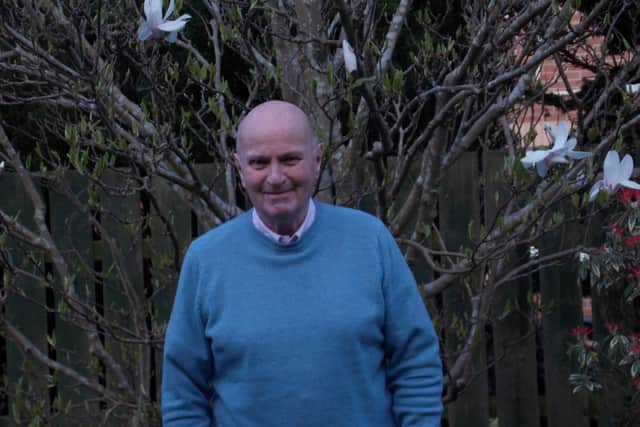Research by boffins at Newcastle University helps Choppington grandfather fight cancer
and live on Freeview channel 276
The pioneering immunotherapy treatment, which slows the growth of tumours down, aims to help cancer patients live better and longer lives.
It is designed for patients who have advanced liver cancer which has been diagnosed too late for them to benefit from surgical procedures.
Advertisement
Hide AdAdvertisement
Hide AdJohn Cairns, from Choppington, has liver cancer and thanks to the treatment, has been able to see his granddaughter begin secondary school.


The 75-year-old, who was diagnosed in 2019, said: “I’ve been lucky that way; there’s lots of guys who never made it to my age.
“My father died when he was 42 with cancer and I had an older brother who died with pancreatic cancer, an older brother who died with a cancer in the bile duct and another one who died with bladder cancer.
“The key is finding it early and being in the right place at the right time.”
Advertisement
Hide AdAdvertisement
Hide AdAlthough only about 15 to 25 per cent of people with liver cancer respond to immunotherapy, it is the most effective treatment for those with advanced disease. His clinicians said that John wa one of the lucky ones who has benefited from the treatment.
A retired officer with the Inland Revenue, John and his wife, Marion, have cared for their granddaughter, Katie, 12, since her early childhood.
John added: “As long as the immunotherapy keeps working, I can continue to enjoy the time that it’s giving me with my family in retirement.
“My granddaughter started at secondary school this year and I got to see that wonderful moment, thanks to research.”
Advertisement
Hide AdAdvertisement
Hide AdThe team behind the treatment, led by Professor Derek Mann, has recently been awarded a research grant of nearly £2 million from Cancer Research UK to continue its work.
Ultimately, the team hopes to find therapies that will help slow the growth of tumours.
Immunotherapy works by helping the body’s immune system to recognise and attack cancer cells, but is still only effective in a minority of cancer patients.
After being diagnosed and looking at options into palliative care, John was given the option to receive the immunotherapy. John still receives the treatment every three weeks to minimise the chances that the cancer might flare up again. It is administered via an infusion and takes about 90 minutes.
Advertisement
Hide AdAdvertisement
Hide AdHe said: “There’s been no indication of any spread and the tumours themselves have gone to almost nothing.
“The treatment is causing my immune system to target and kill off the tumour, more or less ringfence it and keep it contained by shrinking it considerably and not allowing any further spread.
“It’s fantastic. If they hadn’t given it to me, I wouldn’t be here today.”
Prof Mann, who works in collaboration with a team at the Cancer Research UK Beatson Institute in Glasgow, said: “At the present time, the prognosis for liver cancer that’s caught late isn’t good. Immunotherapy can be successful for these patients but it doesn’t work as well as we would like and unfortunately it doesn’t work for everyone.”